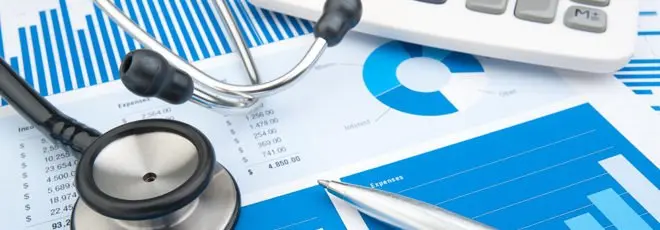ASU Study: Freedom Debt Relief Clients Are 24% More Financially Healthy

- Researchers at Arizona State University found that consumers who enrolled into a Freedom Debt Relief program were better off financially healthy than those who qualified to enroll but didn't.
- Freedom Debt Relief graduates had a lower debt load and higher credit scores.
- Debt relief clients graduates also exhibited better financial management skills.
Do you get a feeling of dread every time you get a credit card bill? You’re not alone. Many Americans are dealing with the same financial stress. But if you find yourself increasingly worried about money, it could be a sign that it’s time to commit to improving your financial health—as so many Freedom Debt Relief clients have done.
Being financially healthy means you can:
Cover an unexpected expense without a credit card or loan
Have a realistic action plan to achieve financial goals like buying a house or car
Maintain a budget and spend less than you make each month
Feel confident about your financial abilities
There are some simple ways to start improving your financial health, such as creating a budget and cutting back on unnecessary expenses. But if you’re struggling with heavy credit card debt, getting financially healthy may not be possible until you put that debt behind you.
The Freedom Debt Relief program was designed to help people do just that. In fact, a recent study proves that Freedom Debt Relief clients greatly improved their financial health. We’ll discuss the details of this study, share tips for improving your finances, and more.
What the study of Freedom Debt Relief clients found
In late 2018, the L. William Seidman Research Institute at Arizona State University compared current and former Freedom Debt Relief clients to people who qualify for Freedom Debt Relief but did not enroll. In this study, they used an assessment called the Financial Capability Scale to measure each group’s financial health.
The study found that both current and former clients who used the Freedom Debt Relief program to get out of debt were more financially capable and healthy than people who could have enrolled—but chose not to.
Freedom Debt Relief clients who completed the program reported being 24 percent more financially healthy and capable than people who never signed up. Compared to folks who didn’t sign up for Freedom Debt Relief, the program graduates stated they were:
13% more likely to have a budget or personal spending plan
17% more confident in their ability to achieve a financial goal they set for themselves
19% more likely to have automatic transfers into a savings account
25% more likely to say that their monthly income was higher than their monthly expenses
45% less likely to have been charged a late fee on a loan or bill in the past two months
Freedom Debt Relief does more than help people get out of debt, reduce stress, and sleep better at night. By educating clients about their finances and encouraging them to save money and make smart financial decisions, we also help them gain stronger financial footing.
Tips for improving your financial health
While the majority of Freedom Debt Relief clients have had positive outcomes, our program may not be right for everyone. So if you want to start improving your financial health even without professional help, here are some smart steps you could take to get your finances on track:
Assess your financial situation: Having a full picture of your current situation is the best way to start taking control of your finances. Sit down and look over all of your bills, bank statements, and paystubs to figure out how much debt you have, how much you’re making each month, and where you are spending that money.
Start budgeting: Once you understand your financial situation, it’s time to start tracking your income and expenses. A budget helps ensure that you aren’t overspending, and it could help keep you focused on your long-term financial goals, like paying off debt or saving for a house.
Make more than the minimum payments: Making minimum payments on your debt could end up costing you thousands of dollars in interest by the time you pay it off. Instead of just paying the minimum, consider making additional payments on your debt so that you save money and get out of debt sooner.
Reach out for help: If you’re dealing with heavy debt and struggling to make your payments, it may be time to get debt help. Credit counseling, debt consolidation, and debt settlement are all options that could help you solve your debt problem.
Get started on improving your financial health today
As so many Freedom Debt Relief clients have discovered, our debt relief program may be a good option if you are struggling with debt. Our Certified Debt Consultants will discuss your options and help you find a solution that will put you on a better financial footing. Find out if you qualify right now.
Learn More
Is Your Financial Stress at an All Time High? (Freedom Debt Relief)
5 Ways to Get Rid of Debt Stress (Freedom Debt Relief)
Unemployed? Here’s How to Keep Managing Your Credit Card Debt (Freedom Debt Relief)